Foreign
President Tinubu Warns Israel Over Attacks On Iran
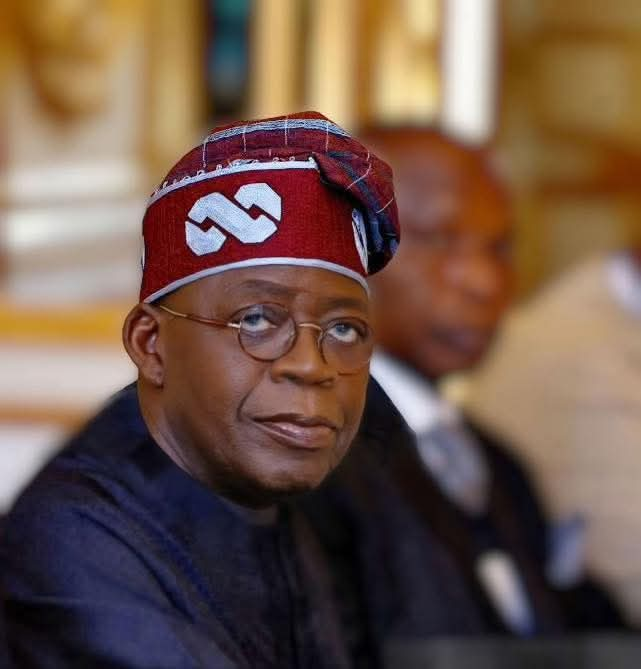
President Bola Tinubu led administration has condemned Israel’s recent strike on Iran, describing it as a move that has dangerously escalated tensions between the two nations.
In a statement issued Saturday by the spokesperson for the Ministry of Foreign Affairs, Kimiebi Ebienfa, the FG expressed deep concern over the intensifying hostilities, which have involved sustained missile and aerial attacks exchanged between Iran and Israel.
The FG called for an immediate end to the violence and urged both countries to show maximum restraint.
According to the statement, continued retaliation risks not only civilian lives but also threatens to destabilise the wider Middle East, with serious consequences for international peace and economic stability.
“The government of the Federal Republic of Nigeria condemns Israel’s preemptive strike on Iran that has led to an escalation of hostilities between the Islamic Republic of Iran and the State of Israel, marked by sustained missile and aerial exchanges across both territories.
“Nigeria expresses its grave concern and calls for an immediate cessation of hostilities and urges both parties to exercise utmost restraint in the interest of regional and global peace.
“The continued cycle of retaliation not only endangers civilian lives but threatens to plunge the broader Middle East into further instability, with implications for international security and economic development,” MFA stated.
Reaffirming its longstanding commitment to peaceful coexistence and diplomatic resolution of conflicts, the FG emphasised the importance of dialogue over confrontation.
The government also called on the international community, particularly the United Nations Security Council, to step up efforts to de-escalate the situation and facilitate meaningful negotiations between the parties involved.
“Military action is not a substitute for negotiation,” the statement read, stressing that enduring peace must be built on diplomacy, mutual respect, and adherence to international law.
Nigeria pledged its support for all sincere efforts aimed at restoring calm and fostering peace in the region.
“As a nation deeply committed to the principles of peaceful coexistence, non-aggression, and multilateral diplomacy, Nigeria calls on all involved to prioritise dialogue over confrontation.
“We urge the international community, particularly the United Nations Security Council, to intensify efforts toward immediate de-escalation and to provide a platform for constructive engagement.
“The path to lasting peace lies in diplomacy, mutual respect, and adherence to international law. Nigeria stands ready to support all genuine efforts aimed at de-escalating tensions and promoting peace in the region,” the statement added.
On Friday, Israel launched a major air campaign targeting around 100 sites across Iran, including nuclear and military facilities, killing several senior Iranian military leaders.
The strikes, marking one of the most significant escalations between the two countries in recent years, triggered widespread international reactions urging calm and diplomacy to prevent further conflict.
Among those killed were Iran’s armed forces chief of staff, General Mohammad Bagheri, and the commander of the Islamic Revolutionary Guard Corps, Hossein Salami.
Iran’s supreme leader Ayatollah Khamenei called Israel’s wave of strikes a “declaration of war”, as he warned Israel it faced a “bitter and painful” fate over the attacks, while the Iranian military said there were “no limits” to its response.
President Bola Tinubu led administration has condemned Israel’s recent strike on Iran, describing it as a move that has dangerously escalated tensions between the two nations.
In a statement issued Saturday by the spokesperson for the Ministry of Foreign Affairs, Kimiebi Ebienfa, the FG expressed deep concern over the intensifying hostilities, which have involved sustained missile and aerial attacks exchanged between Iran and Israel.
The FG called for an immediate end to the violence and urged both countries to show maximum restraint.
According to the statement, continued retaliation risks not only civilian lives but also threatens to destabilise the wider Middle East, with serious consequences for international peace and economic stability.
“The government of the Federal Republic of Nigeria condemns Israel’s preemptive strike on Iran that has led to an escalation of hostilities between the Islamic Republic of Iran and the State of Israel, marked by sustained missile and aerial exchanges across both territories.
“Nigeria expresses its grave concern and calls for an immediate cessation of hostilities and urges both parties to exercise utmost restraint in the interest of regional and global peace.
“The continued cycle of retaliation not only endangers civilian lives but threatens to plunge the broader Middle East into further instability, with implications for international security and economic development,” MFA stated.
Reaffirming its longstanding commitment to peaceful coexistence and diplomatic resolution of conflicts, the FG emphasised the importance of dialogue over confrontation.
The government also called on the international community, particularly the United Nations Security Council, to step up efforts to de-escalate the situation and facilitate meaningful negotiations between the parties involved.
“Military action is not a substitute for negotiation,” the statement read, stressing that enduring peace must be built on diplomacy, mutual respect, and adherence to international law.
Nigeria pledged its support for all sincere efforts aimed at restoring calm and fostering peace in the region.
“As a nation deeply committed to the principles of peaceful coexistence, non-aggression, and multilateral diplomacy, Nigeria calls on all involved to prioritise dialogue over confrontation.
“We urge the international community, particularly the United Nations Security Council, to intensify efforts toward immediate de-escalation and to provide a platform for constructive engagement.
“The path to lasting peace lies in diplomacy, mutual respect, and adherence to international law. Nigeria stands ready to support all genuine efforts aimed at de-escalating tensions and promoting peace in the region,” the statement added.
On Friday, Israel launched a major air campaign targeting around 100 sites across Iran, including nuclear and military facilities, killing several senior Iranian military leaders.
The strikes, marking one of the most significant escalations between the two countries in recent years, triggered widespread international reactions urging calm and diplomacy to prevent further conflict.
Among those killed were Iran’s armed forces chief of staff, General Mohammad Bagheri, and the commander of the Islamic Revolutionary Guard Corps, Hossein Salami.
Iran’s supreme leader Ayatollah Khamenei called Israel’s wave of strikes a “declaration of war”, as he warned Israel it faced a “bitter and painful” fate over the attacks, while the Iranian military said there were “no limits” to its response.
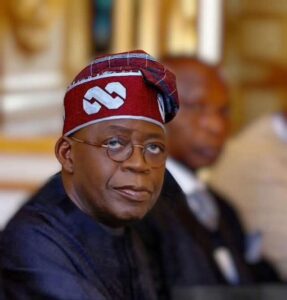
Foreign
Goodluck Jonathan Reportedly Stranded in Guinea-Bissau After Sudden Military Takeover

Former Nigerian President Goodluck Jonathan is reportedly stranded in Guinea-Bissau following the military’s announcement of a takeover on Tuesday.
Jonathan, who travelled to the country as part of an international election observation mission, was expected to oversee the release of official results before the unexpected shift in power disrupted all movement. Sources say he and other foreign observers are currently unable to leave as security restrictions tighten across the capital.
The situation has sparked concern among regional stakeholders, with diplomatic channels said to be monitoring developments closely. So far, neither Jonathan nor Nigerian authorities have issued an official statement on his safety or plans to return.
The unfolding political tension in Guinea-Bissau continues to draw global attention, especially as the fate of the election results remains unclear.
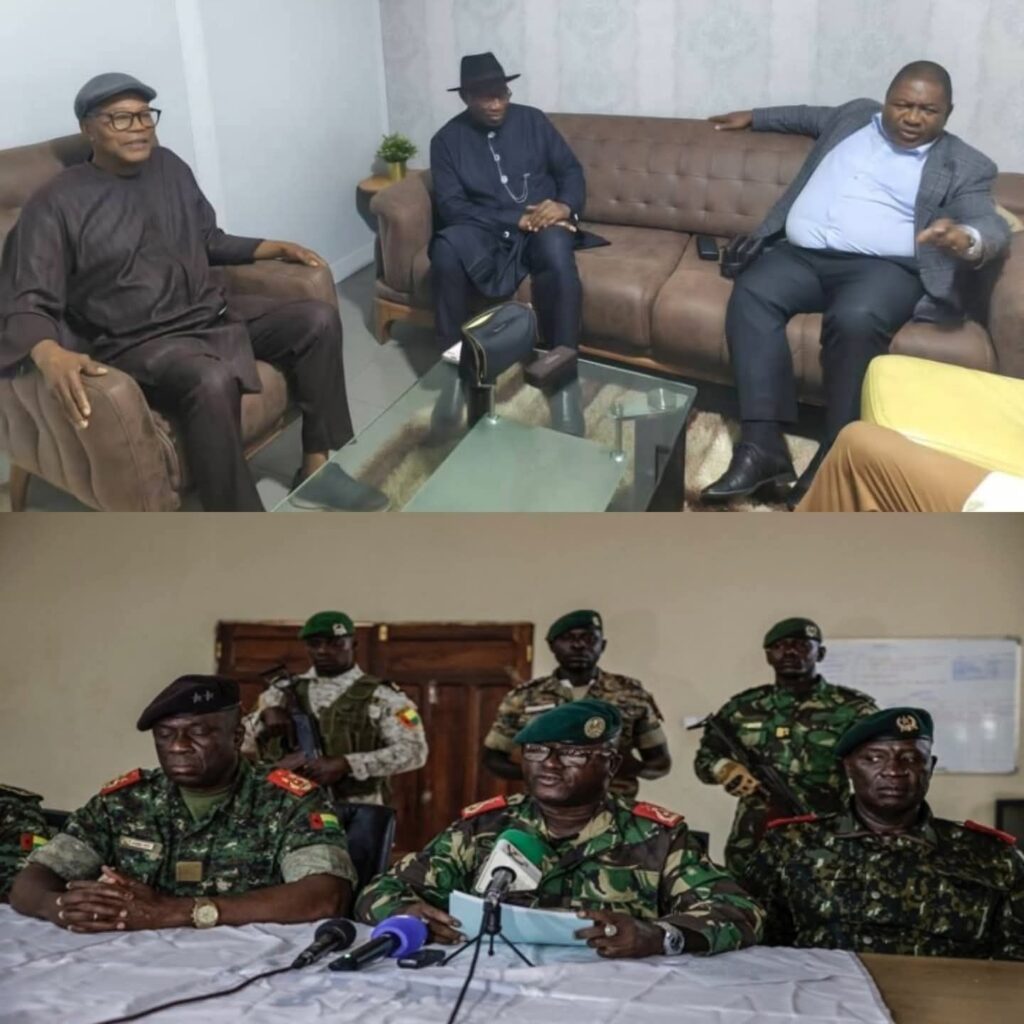
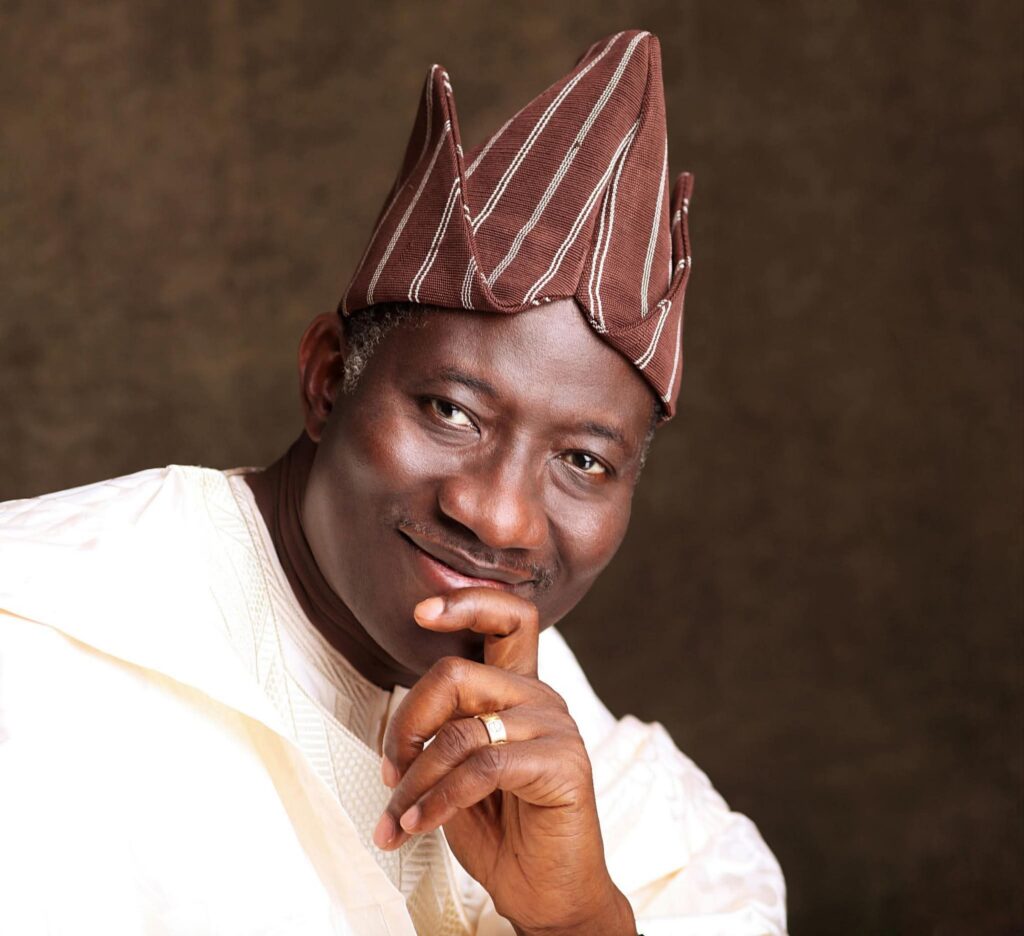
Foreign
China Reaffirms Commitment to Supporting Nigeria’s Fight Against Terrorism
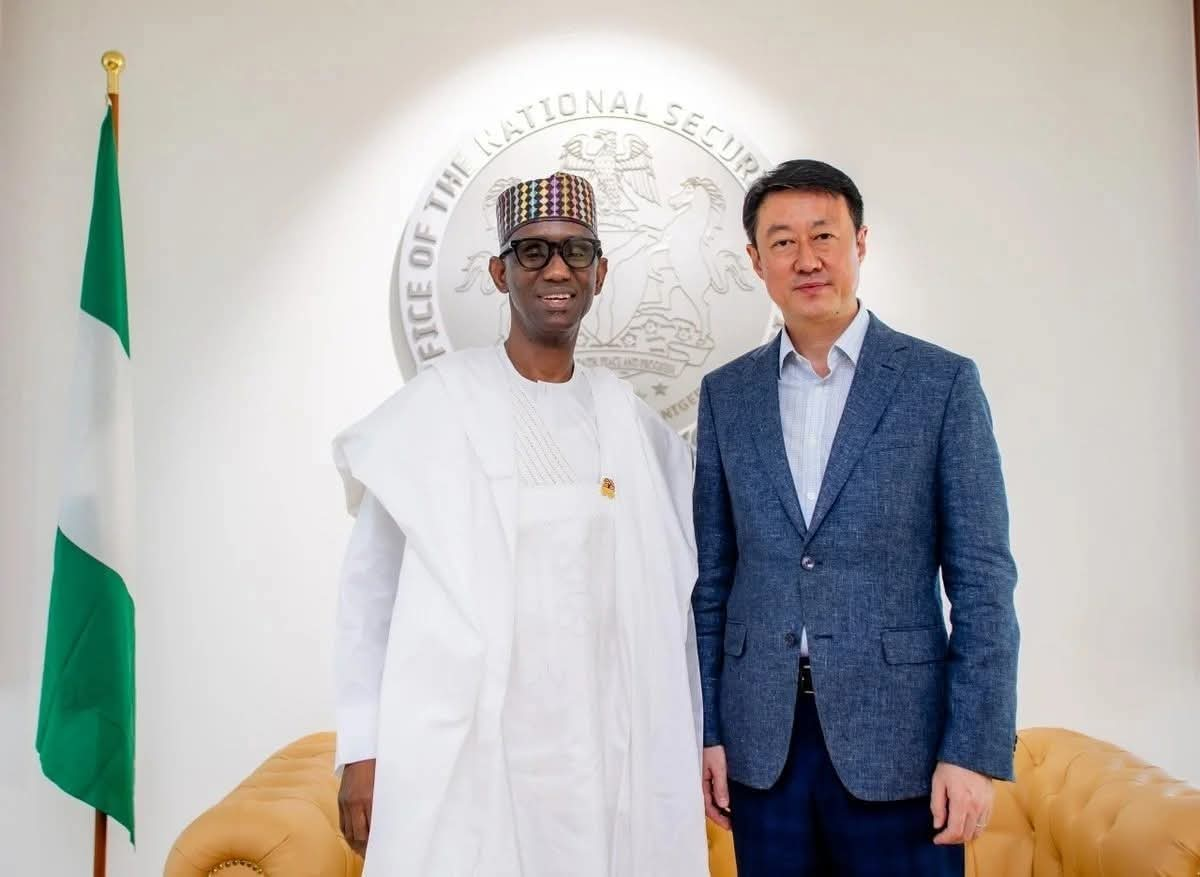
China has restated its readiness to continue supporting Nigeria in the ongoing fight against terrorism and efforts to maintain national stability.
Chinese Ambassador to Nigeria, Yu Dunhai, gave the assurance after a meeting with the National Security Adviser, Nuhu Ribadu, on Thursday.
In a statement shared via X, the ambassador said China “firmly supports” the Nigerian government’s development strategies that align with the country’s realities and long-term goals.
Dunhai also emphasized that China remains opposed to any external interference in Nigeria’s internal affairs “under the pretext of religion and human rights.”
The meeting further strengthened diplomatic ties between both nations, with discussions centered on security collaboration and sustainable development.
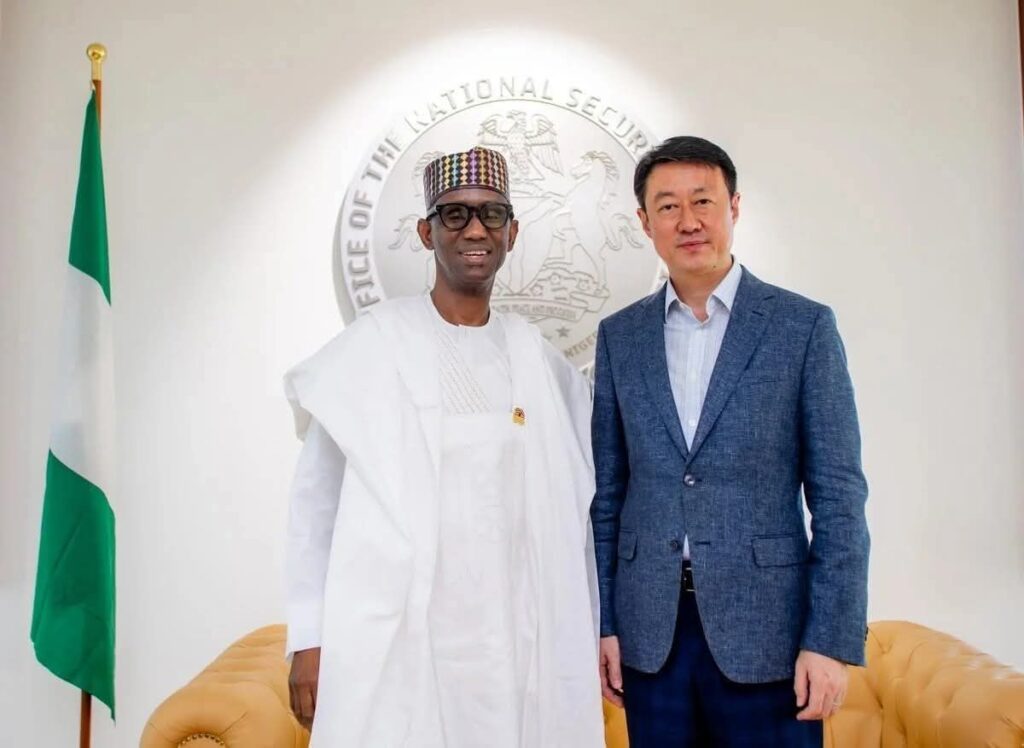
Foreign
Tanzania Erupts in Protests Over Controversial Election as President Samia Faces Mounting Pressure
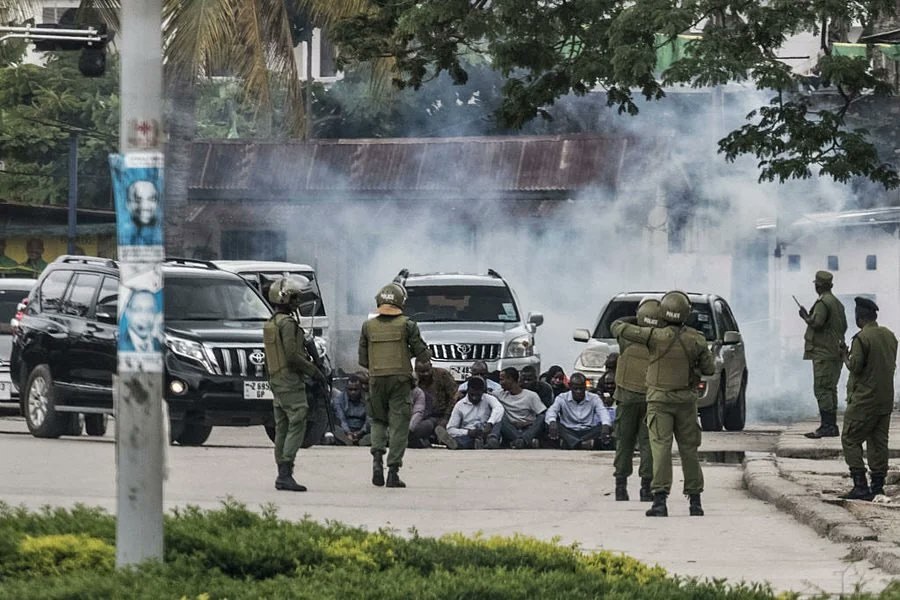
Tanzania has been plunged into chaos as citizens flood the streets to protest alleged irregularities in the country’s presidential election.
The unrest, which erupted shortly after the announcement of preliminary results, has spread rapidly across major cities. In Dar es Salaam — the nation’s commercial hub with a population exceeding seven million — the situation escalated as angry demonstrators set government offices and several public buildings on fire.
The tension comes amid heightened political scrutiny of President Samia Suluhu Hassan, who became Tanzania’s first female president following the death of her predecessor, John Magufuli, in 2021. Many opposition supporters allege that the current election was manipulated to keep her in power, raising concerns about transparency and fairness in the democratic process.
In response to the violence, the police have imposed an overnight curfew in Dar es Salaam to restore order and prevent further destruction. Security forces have also been deployed across key areas of the city to contain the growing tension.
Authorities have urged citizens to remain calm while investigations into the alleged electoral misconduct continue. However, opposition figures and civil society groups are demanding accountability, insisting that the people’s mandate must be respected.
As the crisis deepens, many fear the situation could spiral into nationwide unrest if dialogue and swift action are not taken.
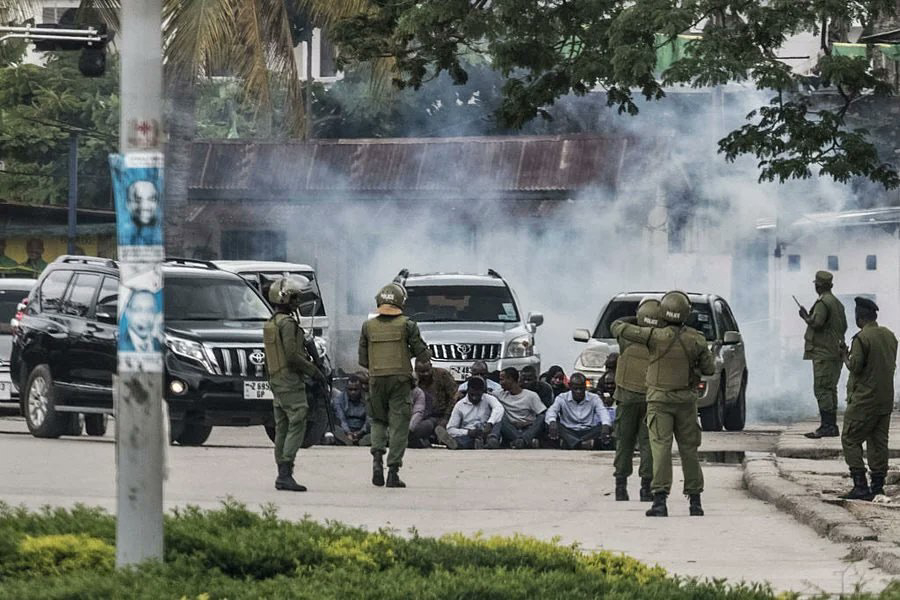
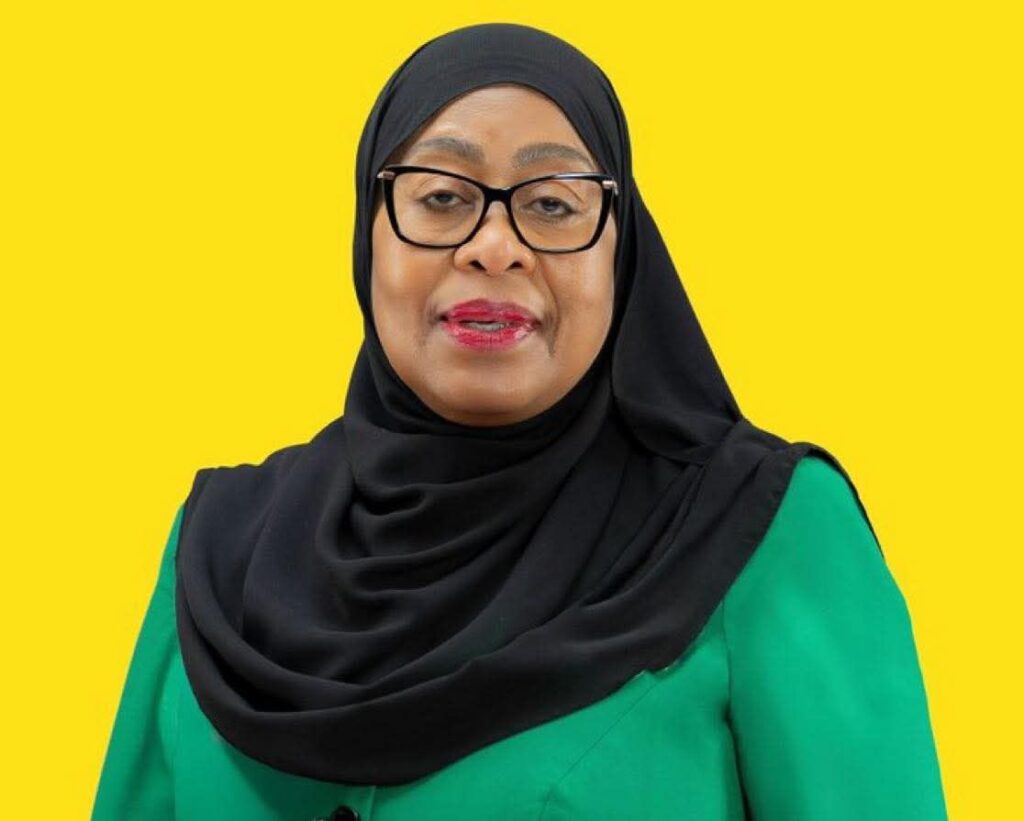
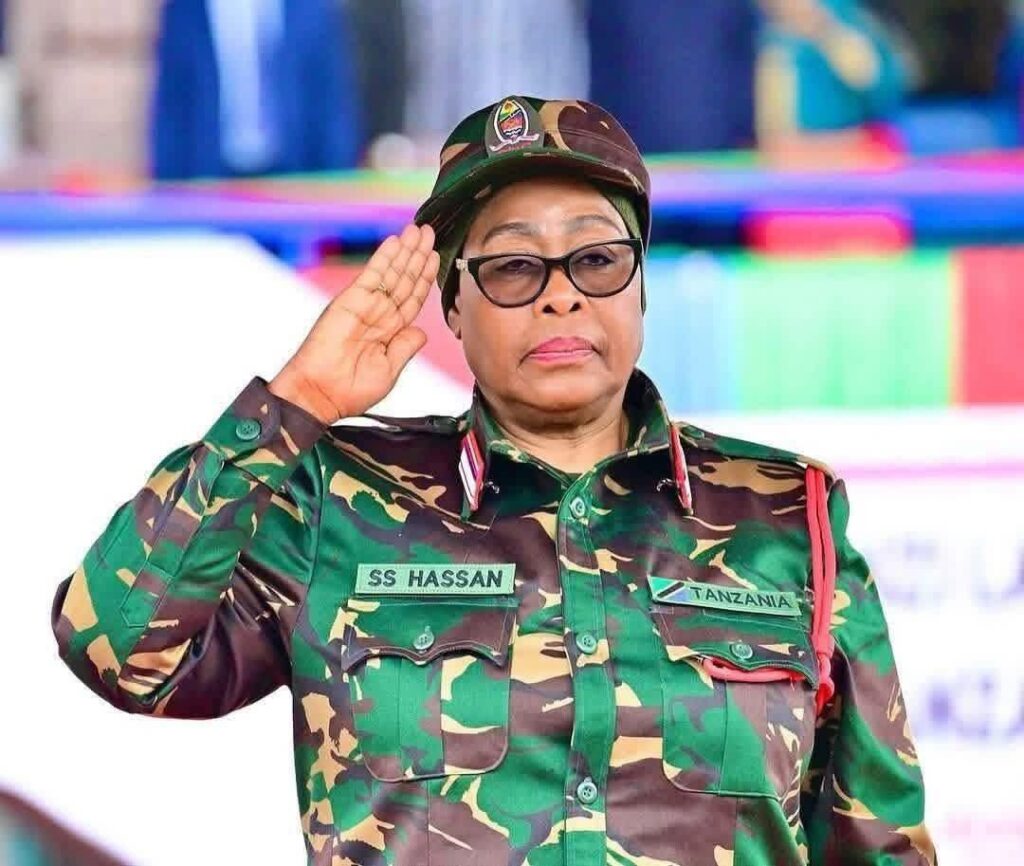
-

 News2 years ago
News2 years agoHardship: We Plan To Establish A National Commodity Board To Crash Food Prices – VP Shettima
-
News8 years ago
Blog Reader; Samson Osagiede Celebrates Fiancè Benedicta Daniels’s Birthday With Sweet Words
-
Home9 years ago
News Channel claims Donald Trump is an orphan from Pakistan,share alleged childhood photo
-
Home9 years ago
Another $175m Found in Patience Jonathan’s wife’s firm’s Bank Account
-
Home9 years ago
Oil Spillage: House of Reps Member Shares Photos of the Water her Constituents Drink .
-
Home9 years ago
Zara Buhari & Ahmed Indimi’s Wedding Access Card
-

 Sport7 years ago
Sport7 years agoModric, Marta Wins 2018 FIFA Best Player Of The Year Awards ⚽️
-
News8 years ago
The Best Video You’ve Seen Today?
